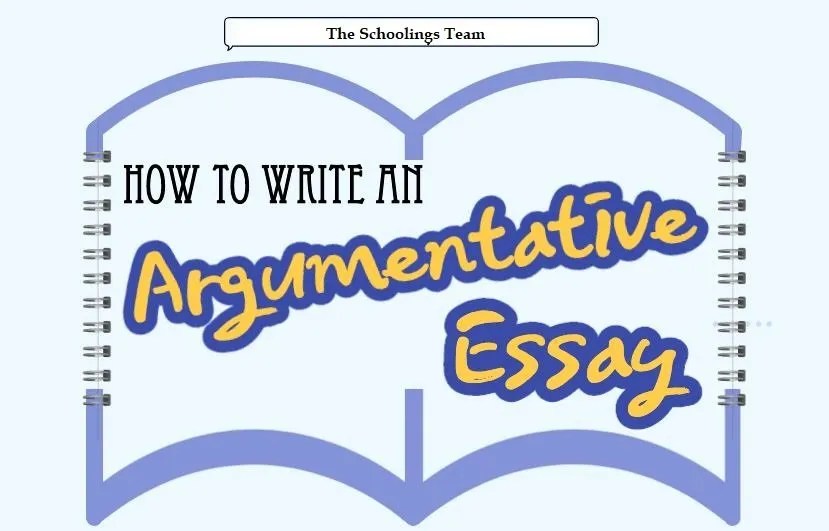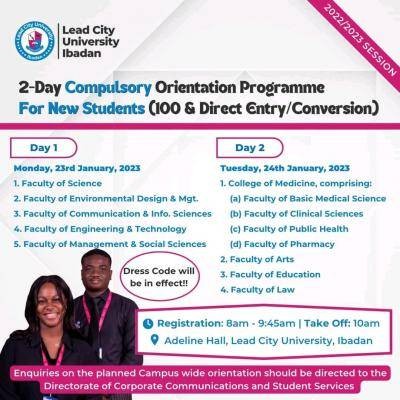
What Is an Argumentative Essay?
A piece of writing in which the author expresses his or her opinion on a particular topic is known as an argumentative essay. A good argumentative essay attempts to persuade readers to understand and support the writer’s point of view on a topic by stating their reasoning and providing evidence to support it.
High school and college students are frequently assigned to write argumentative essays. Science, technology, politics, and health care are common topics for argumentative essays.
Outlining an Argumentative Essay in 4 Steps
Argumentative essays should have a simple structure so that readers can easily follow them. The purpose of an argumentative essay is to outline a point of view, reasoning, and evidence clearly and concisely. A good argumentative essay should be organized as follows:
1. Introduction:
The first paragraph of your essay should introduce the topic, provide background information required to understand your argument, outline the evidence you will present, and state your thesis.
2. The thesis assertion/statement
This is a sentence from your opening paragraph. It summarizes your main point and claims in one sentence.
3. Body of the essay
An argumentative essay typically consists of three or more paragraphs that explain why you support your thesis. Each body paragraph should address a different idea or piece of evidence and include a topic sentence that explains why the reader should agree with your position clearly and concisely. Body paragraphs are where you use examples, research, statistics, studies, and text citations to back up your claims. Disprove or explain why you disagree with opposing viewpoints. Presenting facts and considering a topic from all perspectives adds credibility and helps you gain your reader’s trust.
4. Conclusion
A single paragraph that restates your thesis and summarizes all of your body paragraphs’ arguments. A good conclusion will appeal to a reader’s emotions rather than introducing new facts or arguments. Some writers seize this opportunity to show how the topic resonates with them using personal anecdotes.
Writing a Thesis Statement in 3 Steps
Although it is only one sentence long, your thesis statement is the most crucial part of your argumentative essay. The thesis, which appears in your introductory paragraph, summarizes the topic of your argumentative essay and prepares the reader for what is to come. These steps will assist you in making your point clearly and concisely:
- Make the topic into a question and respond to it. In the title of your essay or within the first few sentences, pose a big question. Then, in your thesis statement, work your way up to answering that question. For instance, in your title or introduction, you could ask, “What is the best type of sandwich?” Your response will then be a thesis statement: “The best sandwiches are peanut butter and jelly.” This method works well because well-formulated questions entice readers to keep reading to find the answer.
- Make an argument, then counter it. Introduce an idea that contradicts your belief and explain why you disagree with it right away. Although there are differing opinions on whether corn or cassava can be eaten as a simple meal, they can be used to make other things, such as swallow when reprocessed. This argumentative method works well because it employs facts that help in establishing instant credibility.
- Outline your main points in brief. Explain how you will back up your main point. For example, “by using artisanal bread, adding additional toppings and toasting it, a peanut butter and jelly sandwich can be elevated to a gourmet meal.” This method works well because it gives readers a clear picture of everything you will cover in your essay.
- For instance, Corn and Cassava can be eaten as different meals with soup. This method gives readers a clear picture of everything you will cover in your essay. It also serves as a road map to keep you on track and organized.
Five (5) Different Types of Argument Claims
Consider how you will present your argument once you have decided what you are arguing and have a thesis statement. There are five different types of argument claims that can be used to propel your essay:
- Fact: this helps to define the truth or falsity of the statement.
- Definition: both the dictionary definition and your own personal interpretation of what you’re arguing about.
- Value: the significance of what you’re arguing.
- Effect and causes: in your essay, explain what causes the problem and the consequences.
- Policy: What should the reader do after reading, and why should they care?
Three (3) Major Types of Arguments and How to Use Them
There are three possible structures for an argumentative essay. To write your persuasive paper, choose one of the following or combine them:
1. Classical
Present the main argument, express your opinion, and do your best to persuade the reader that your point of view is correct. This is the most common strategy for making an argument, also known as Aristotelian because it is the simplest line of thought to follow. It’s useful when your audience doesn’t have much knowledge or a strong opinion about your topic because it lays out the facts clearly and concisely.
2. Rogerian
Present the issue, acknowledge the opposing viewpoint, state your point of view, and explain why yours is the best for the reader. Because it acknowledges both sides and presents the middle ground, this argument is compelling for polarizing issues.
3. Toulmin
Present your claim, then present grounds to support it, and finally justify why the grounds are related to the claim. This type of argument is also effective for polarizing topics. Still, instead of presenting both sides, it only shows one, relying heavily on facts presented so that the claim is difficult to refute.
3 Tips for Writing a Good Argumentative Essay
Clarify Your Thesis
The thesis is the most crucial part of your argumentative essay; if it is unclear or difficult to find, your entire essay will suffer. Make your thesis statement visible and easy to find. If it doesn’t fit in the final sentence of the introduction paragraph, try putting it as the first or last sentence of a different paragraph to make it stand out more. Also, make it clear in your thesis which side of the debate you are on. After you’ve finished writing it, show it to a few different people—classmates are ideal for this. They should be able to understand what point you’ll try to make with the rest of your essay just by reading your thesis.
Demonstrate Why the Opponent Is Weak
When writing your essay, you may be tempted to ignore the opposing viewpoint and only focus on your own, but don’t do so. The best argumentative essays thoroughly dissect the opposing view to demonstrate why readers should not believe it. Before you write your essay, find out what the opposing viewpoint believes and their strongest points. Then, in your essay, mention these and provide evidence to demonstrate why they are incorrect/weak arguments. That will make your essay far more effective than focusing solely on your side of the argument.
Use Facts to Back Up Your Position
Remember that an essay cannot be called an argumentative essay if it lacks evidence to back up its claims. Make sure you have facts to back up every point you make. Previous studies on the subject, surveys of large groups of people, data points, and so on are some examples. There should be a lot of numbers in your argumentative essay to back up your point of view. This will strengthen your essay beyond simply relying on your opinions to support your argument.
Sample Argumentative Essay 1: Students who study abroad are more successful
This is a college essay that a high school student might think about as they prepare for the four most exciting years of their lives in college.
Outside of the classroom, we learn a lot. We learn how to manage budgets, form friendships, and build business relationships, among other things. Consider extending those abilities on a global scale. We would no longer believe that the world only consists of the people and things we can see, but instead of a wide range of opinions, customs, beliefs, and ethics. This is why, during their undergraduate years, every college-level student must study abroad. They will learn more than in any other academic year during that semester abroad.
Students who study abroad are more likely to be accepted into their preferred graduate degree program, according to IES Abroad, a company that encourages students to become international leaders. In fact, 90% of IES students are admitted to their first or second choice graduate school.
Consider walking into an interview and being able to discuss preparing India’s most popular dish or planning the best route from Sydney, Australia to Perth. This not only starts a memorable conversation but also shows a student’s fierce independence and determination. All of this makes an international student a more desirable candidate for their dream job. As if the above statistic from IES Abroad wasn’t impressive enough, it has been proven that 97 per cent of students who study abroad find employment within 12 months of graduation (Smith, 2019, p. 17).
Studying abroad makes one better equipped for immediate entrance into the labour market after graduation. Their broader worldview will help them relate to their coworkers, which is especially important in a global organization. Because of their expanded knowledge, 25% of students who study abroad earn higher starting salaries. That is clear evidence that employers value their experiences and perspectives.
Despite these advantages, some parents simply refuse to allow their children to study abroad. Some will argue that it is unsafe. Others will argue that studying abroad is too expensive. It is critical in these cases to review one semester’s financial aid statement. How much does it cost to attend a local university? The difference between the cost of a semester abroad compared to schooling at home is larger considering the costs of housing, meal plans, tuition, transportation and textbooks.
Studying abroad will have long-term, positive effects on a student’s academic and professional future. When an undergraduate boards a plane, new doors of opportunity will open. Make an appointment with your university’s study abroad office. You have nothing to lose by striking up a conversation right now.
Sample Argumentative Essay 2: The World Would Be a Better Place Without Alcohol
What exactly is an argumentative essay? It’s a strong argument with no room for interpretation. When someone has finished reading one of these essays, they should have no doubt about the writer’s point of view. Here is an example of an essay that a student in secondary schools or tertiary institutions could write.
It was 8:54 p.m. on a hot mid-July Sunday evening. Abigail Parnas, a Westlake Middle School student, was walking home with her mother from Nana’s house. They didn’t notice the speeding car because she was engrossed in her new iPad. A 2018 Mercedes-Benz G-Class SUV mowed her and her mother down. They died in an instant.
After an argument with her husband, a 32-year-old woman drank two bottles of wine before getting behind the wheel to buy a third. She murdered them in the time it takes to say “Cheers.” Alcohol prohibition would reduce violent crime and the number of vehicular manslaughter cases. More specifically, Abigail would still be alive.
Every day, nearly 30 people are killed in drunk-driving accidents (Wilson, 2019, p. 45). That works out to one person every 48 minutes. In less time than it takes to watch the latest episode of Game of Thrones, someone will be killed by drunk driving.
A high school student who begins drinking alcohol during these formative years is five times more likely to drop out (Perry, 2018, p. 13). Worse, because alcohol lowers inhibitions, it is likely to lead to even more disastrous outcomes, such as drug abuse and unsafe sexual encounters.
People drink to celebrate happy occasions all over the world. They also drink with their friends at the end of a long day. Wine or beer is consumed by social drinkers while preparing dinner, watching a movie, sitting on the back patio, enjoying a picnic, dining downtown, and other activities. If alcohol is a choice, why is it so prevalent? Why do so many people drink it? Is there a greater reliance than people realize?
Alcohol use disorders affect over 17 million Americans (Legg, 2019, p. 78). Although not every heavy drinker develops into an alcoholic, alcoholism is a progressive disease. As a result, the more people who rely on it “in good and bad times,” the more likely it is that they will develop a dependency.
It’s easy to argue that the entire population should not be prohibited from drinking alcohol simply because some people can’t control their consumption. But what if the gateway to bad decisions was removed? After all, alcohol is a highly addictive substance. Why should it be placed in the hands of anyone as a tempting invitation to death’s door? Even if a person consumes alcohol in moderation, it has no health benefits. Participants consume ethanol with every sip, the same substance that is pumped into car gas tanks.
That 32-year-old woman went from a life of luxury to one with only one hour of sunlight. She has slosh for breakfast, unknown meat for lunch, and soggy potatoes for dinner. Nobody ever comes to see her. She hasn’t seen her husband or kids in more than a decade. Prison therapists are unable to break her self-imposed silence.
Her father passed away from liver cirrhosis. In a drunken stupor, her father’s father fell off the back of a pickup truck, cracked open his skull, and died before his legs touched the ground. She lies in bed every day, wondering when she, too, will die. She would have made plenty of bad decisions in a world without alcohol, but she would not have ended up in prison for taking the lives of sweet Abigail and her loving mother.
Argumentative essays are persuasive essays in which the author uses facts and evidence to support their point of view. Most argumentative essays adhere to either the Toulmin or Rogerian models. You can learn how to develop your essay and provide enough support to persuade readers to agree with your point of view by reading good argumentative essay examples. Remember to make your thesis clear, show where the opposing side is weak, and back up your opinion with data and evidence when writing your essay.


